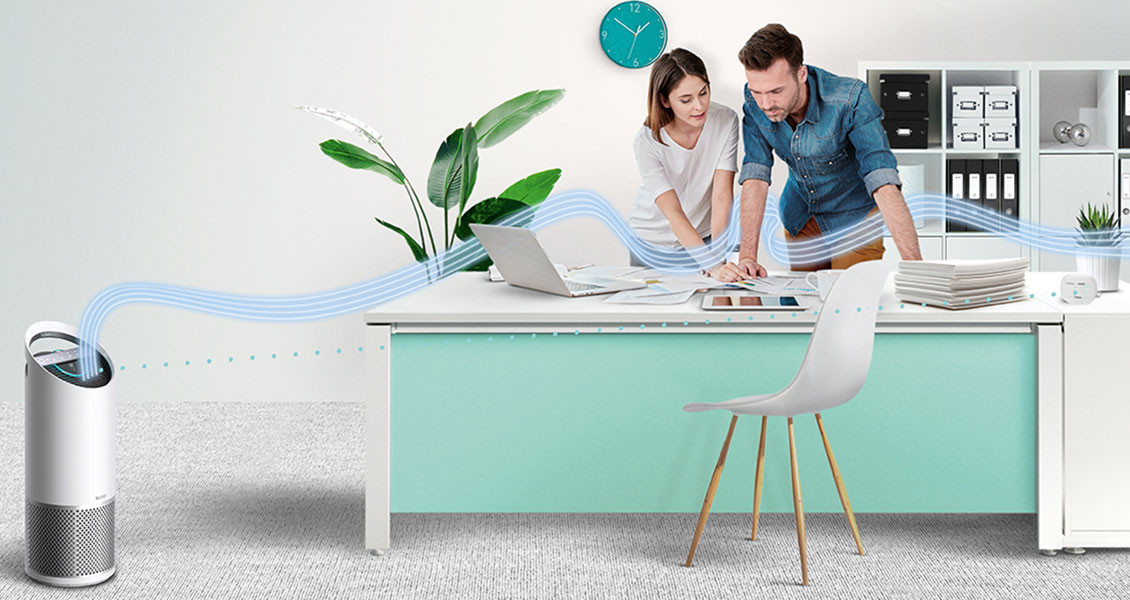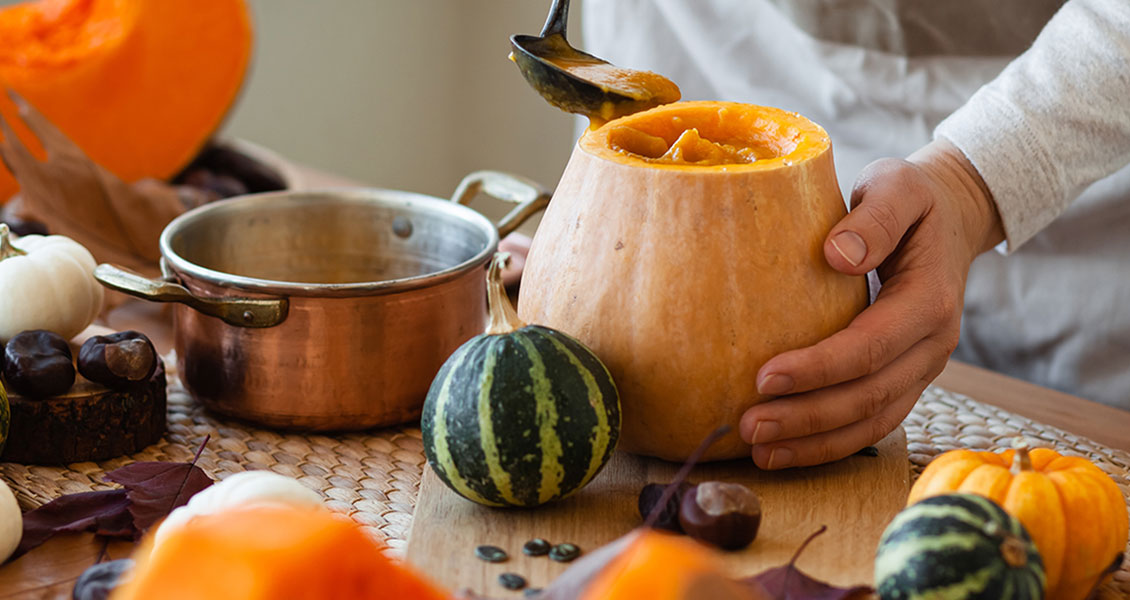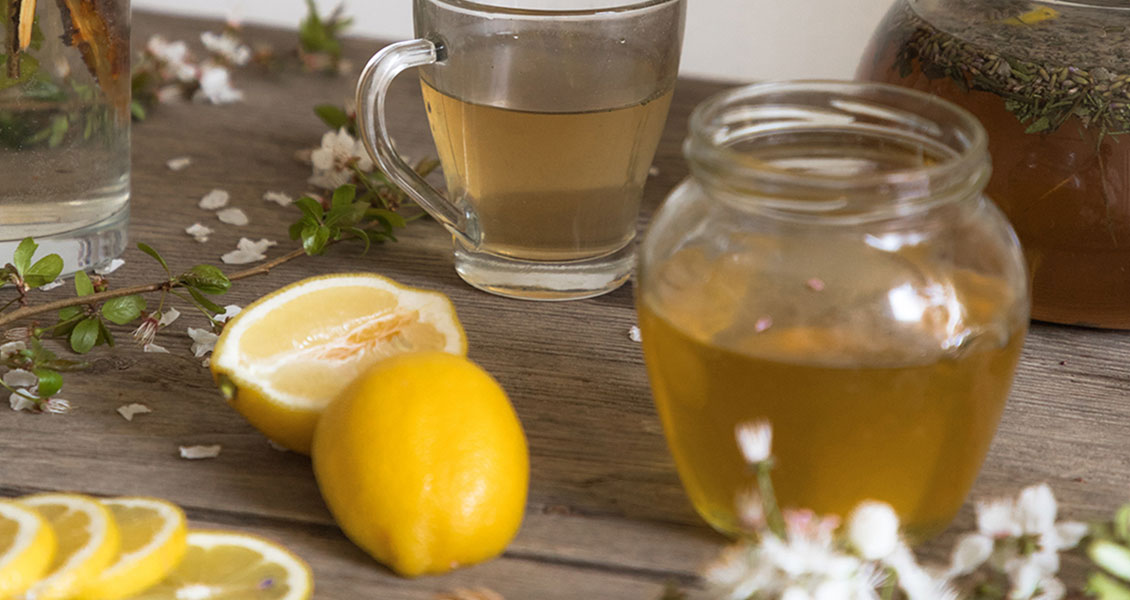The Best Hay Fever Remedies
03.08.2022

If you struggle with hay fever, you’ll know how challenging it can be to go about your daily life during hay fever season. Typically falling between March and September, hay fever season sees the pollen count increasing, leaving hay fever sufferers with runny noses, itchy eyes, and coughs and sneezes.
Fortunately, there are many different remedies sufferers can try to help alleviate their hay fever symptoms and make their lives a little easier in the summer months.
Air Purifier
One of the best hay fever remedies is to improve the air quality in a room with an air purifier. It’s not always possible to completely prevent pollen from entering your home, but an air purifier will capture the pollen in the room, so you can breathe cleaner air. Our Leitz TruSens air purifiers clear a range of pollutants and toxins from the air, including allergens, pollen, VOC gases and other ultra-fine airborne particles. The UV sterilization destroys any germs or viruses that might build up on the filter, so nothing bad gets recirculated into the air, including pollen.

Our Sensor Pod indoor air quality monitor communicates the level of pollutants in the air back to the air purifier, so it can adjust the fan speed as needed. Together, the TruSens air purifier system can monitor and clean the air in even large rooms, helping you to breathe cleaner air.
Our TruSens air purifiers have three different filtration systems targeted at different pollutants to improve indoor air quality. The Allergy and Flu HEPA filter removes 99% of airborne viruses and allergens and has been certified by the European Centre for Allergy Research Foundation (ECARF).
Vaseline
A popular hay fever hack is to create a barrier around your nostrils with Vaseline or a similar balm. This can prevent the pollen from entering your nose by trapping it in the balm, which will stop your hay fever symptoms from being triggered. You should apply the balm before you leave the house, and you may need to reapply it throughout the day. This is a simple way of reducing the likelihood of pollen allergy symptoms and is also a safe hay fever treatment when pregnant, unlike some antihistamines.
Quercetin
Some research has shown that the ingredient quercetin can alleviate hay fever symptoms. Whilst the evidence for its effectiveness is mixed, many people find it can be helpful. Quercetin is an antioxidant flavonoid (a type of chemical found in fruits and vegetables) that has been shown to have antihistamine and anti-inflammatory properties. It can help to alleviate the respiratory symptoms that come with hay fever. Green vegetables, berries, beans, peppers, and red onions are all high in quercetin.
Apples are also high in quercetin, but hay fever sufferers should be wary of apples. This fruit can actually react badly with some types of pollen and can exacerbate pollen allergy symptoms, causing an itchy mouth and swollen tongue.

Carotenoids
Another food that can help to combat hay fever is carotenoid. This is a naturally-occurring pigment found in plants such as carrots, sweet potatoes, and pumpkins. It can help to improve the immune system, making it easier for your body to fight off allergies. It can also reduce inflammation in your airways, which will reduce the respiratory problems that can occur because of hay fever. Eating one serving per day of vegetables that are rich in carotenoids can help you to combat hay fever and reduce symptoms.
Tea
Tea is another natural treatment for hay fever, and various teas can help alleviate and prevent symptoms. Black tea and green tea both contain quercetin, which has antihistamine properties. Chamomile tea also acts as an anti-inflammatory when ingested and the tea bags can be used to soothe irritated eyes. Just wait for the brewed tea bags to cool down completely (or place them in the fridge to soothe even more) and then place on your eyes to help calm and relieve itchy eyes. Peppermint tea can help to relieve congestion in the sinuses caused by hay fever, helping you to breathe easier. Nettle tea contains antihistamines that can reduce inflammation in the nose and relieve hay fever symptoms.
Spicy Food
If you’re struggling with congestion caused by hay fever, spicy food can help to clear it. Food like hot peppers, which contain capsaicin, will open the nasal passages and widen your airways, making it easier for you to breathe. Turmeric is another spice that can help alleviate pollen allergy symptoms, as it has anti-inflammatory properties that can reduce swelling and irritation.

Honey and Lemon Drink
Honey is often touted as a natural hay fever remedy, but its effectiveness is disputed. Hay fever is usually caused by pollen from grass and trees - the pollen in honey is from flowers and doesn’t cause hay fever. However, making a tea by brewing lemon juice with honey in hot water can help to soothe an irritated throat and reduce coughing, which are both symptoms of hay fever. Lemons are high in vitamin C, which can boost your immune system and help you to combat hay fever. You can also add ginger to your drink, as ginger also has anti-inflammatory properties which can alleviate hay fever symptoms.
Antihistamine Medication
Antihistamine medication can be extremely helpful for hay fever sufferers. However, some medication used to treat hay fever can cause drowsiness and most aren’t suitable for people who are pregnant, so you should always check the label or speak to the pharmacist about what sort of medication will be suitable for you.
There are a lot of different types of antihistamine medication available, so if one type doesn’t work for you, you should look for another type to try. A pharmacist should be able to advise on what sort of medication is right to treat your symptoms. If your symptoms are severe and you are unable to find over-the-counter medication to help control them, your pharmacist may advise you go to a GP for a prescription.
Neti Pot
A Neti pot can be a great hay fever remedy. It works by flushing a saline solution through the nostrils, to help wash away pollen and irritants. Neti pots have been used for centuries for nasal irrigation, helping to relieve congestion and irritation. It thins mucus in the nose and clears it away, helping you to breathe easier. Sterile water, not tap water, should always be used and you should use a Neti pot once a day at most to prevent any infection. Neti pots shouldn’t be used for children unless advised by a doctor.
Leitz’s range of smart air purifiers can help you to breathe cleaner air and reduce allergens. Our speciality filtration solutions mean you can customise your air purification, so it best meets your needs, including Allergy & Flu, Odour, and Pets.
Read more about alleviating allergy symptoms and maintaining good air quality:
How Can We Prevent Indoor Air Pollution?